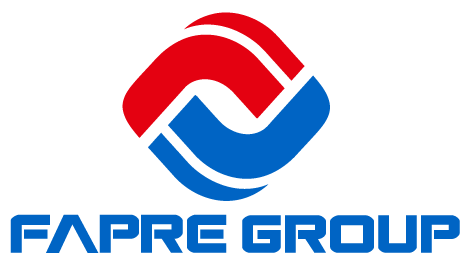NEWS CENTER
Rubber conveyor belts are an indispensable piece of equipment in modern industry, widely used in mining, metallurgy, coal, ports, chemicals, food processing, and many other sectors. Not only do they improve the efficiency of material transportation, but they also significantly reduce labor costs and equipment wear. With excellent abrasion resistance, heat resistance, corrosion resistance, and efficient transmission performance, rubber conveyor belts have become reliable production tools in a variety of industrial settings.
Basic Structure of Rubber Conveyor Belts
A rubber conveyor belt is composed of upper and lower rubber cover layers with a core material in the middle. The outer rubber layer is usually made of natural or synthetic rubber, offering excellent wear resistance and aging resistance. The core material, which can be made from canvas, steel cord, or polyester, provides high tensile strength and fatigue resistance.
Rubber conveyor belts are classified into several types based on their specific use, such as general-purpose conveyor belts, heat-resistant conveyor belts, acid and alkali-resistant belts, oil-resistant belts, and flame-retardant belts. General-purpose rubber conveyor belts are suitable for transporting materials under normal temperature conditions, while heat-resistant belts are designed to maintain good performance in high-temperature environments. Acid and alkali-resistant and oil-resistant belts are particularly suited for use in chemical or grease industries, ensuring that the belts are not damaged when exposed to corrosive substances. Flame-retardant belts, used primarily in coal mining or explosive environments, feature self-extinguishing properties to ensure safe operation.
Advantages of Rubber Conveyor Belts
The benefits of rubber conveyor belts are not only reflected in their material properties but also in their contribution to production efficiency. First, rubber materials offer excellent elasticity and toughness, allowing the belt to operate steadily under heavy loads without breaking or deforming. Secondly, rubber conveyor belts boast outstanding abrasion resistance and impact resistance, making them ideal for long-distance transportation of heavy materials such as ore and coal.
In addition, rubber conveyor belts have a long service life. Special chemical additives in heat-resistant, oil-resistant, and acid-alkali-resistant belts allow them to work reliably for extended periods under harsh conditions, reducing maintenance costs associated with frequent belt replacements. Compared to traditional transportation methods, rubber conveyor belts also significantly lower energy consumption and reduce mechanical wear.
Applications of Rubber Conveyor Belts
Rubber conveyor belts are suitable for virtually all industrial sectors, but their performance stands out especially in mining and port logistics. In mining, ores and coal often need to be transported from underground to the surface, which requires the conveyor belt to have excellent abrasion and impact resistance. In port operations, rubber conveyor belts handle the efficient transportation of bulk goods, ensuring fast loading and unloading processes that enhance port throughput.
Moreover, rubber conveyor belts have also found widespread use in the modern food processing industry. Food-grade rubber conveyor belts must not only offer good durability but also meet strict hygiene standards to ensure that food remains uncontaminated during transportation.
Maintenance of Rubber Conveyor Belts
Despite the durability of rubber conveyor belts, regular maintenance is essential to extend their service life. First, it is important to check the belt’s surface regularly to ensure there are no serious abrasions or cracks. Secondly, any debris on the belt should be cleared regularly to prevent foreign objects from getting embedded and causing damage. Lastly, the belt tension should be properly adjusted to prevent issues like inefficient operation or accelerated aging due to excessive tightness or looseness.
Conclusion
Rubber conveyor belts play a critical role in modern industrial production. Thanks to their excellent properties such as abrasion resistance, heat resistance, and corrosion resistance, they are widely used in various industries, becoming a reliable partner for material handling. As technology continues to evolve, the materials and designs of rubber conveyor belts will further improve, allowing them to play an even more important role in future industrial applications.
